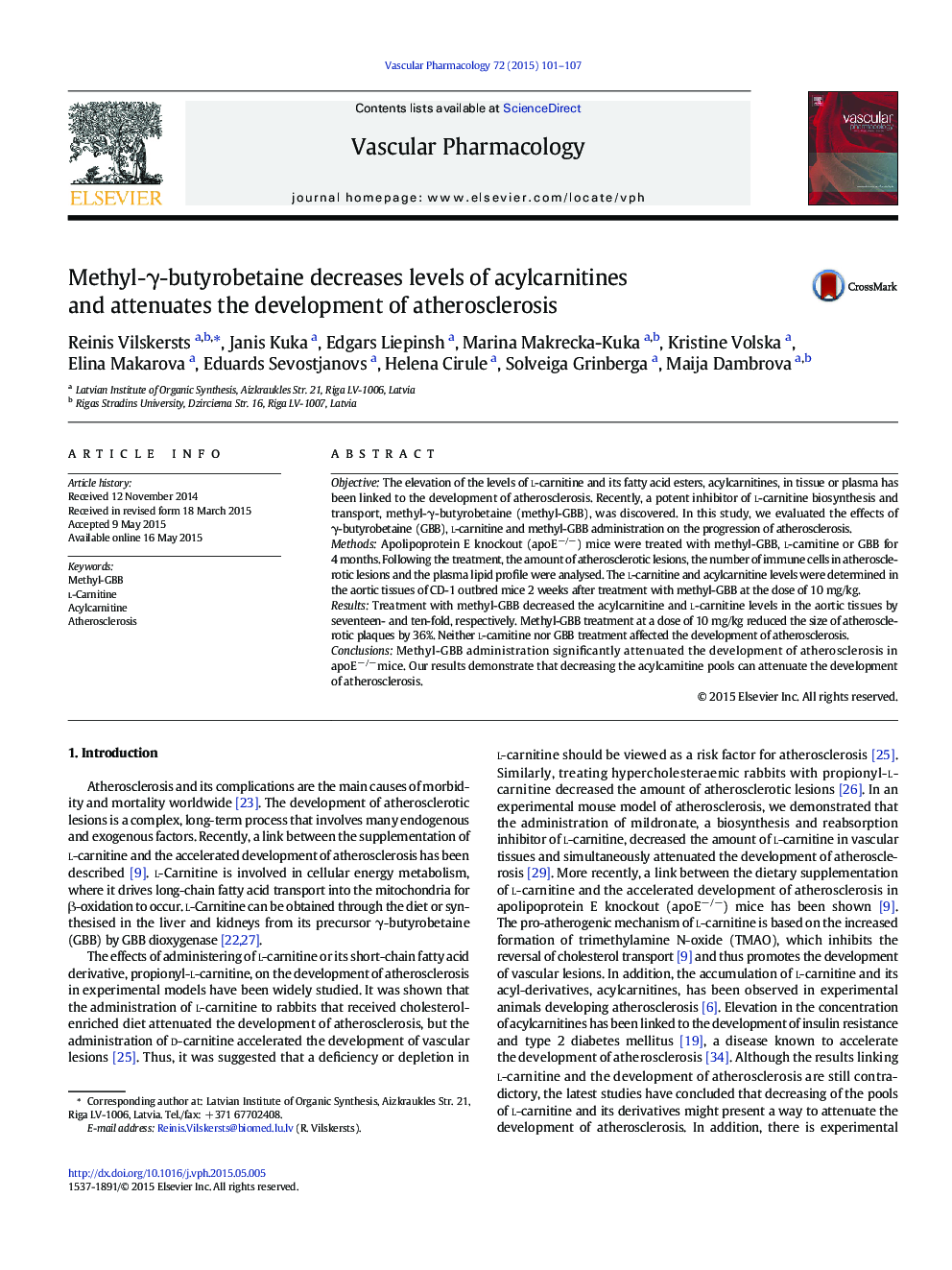| Article ID | Journal | Published Year | Pages | File Type |
|---|---|---|---|---|
| 2573995 | Vascular Pharmacology | 2015 | 7 Pages |
ObjectiveThe elevation of the levels of l-carnitine and its fatty acid esters, acylcarnitines, in tissue or plasma has been linked to the development of atherosclerosis. Recently, a potent inhibitor of l-carnitine biosynthesis and transport, methyl-γ-butyrobetaine (methyl-GBB), was discovered. In this study, we evaluated the effects of γ-butyrobetaine (GBB), l-carnitine and methyl-GBB administration on the progression of atherosclerosis.MethodsApolipoprotein E knockout (apoE−/−) mice were treated with methyl-GBB, l-carnitine or GBB for 4 months. Following the treatment, the amount of atherosclerotic lesions, the number of immune cells in atherosclerotic lesions and the plasma lipid profile were analysed. The l-carnitine and acylcarnitine levels were determined in the aortic tissues of CD-1 outbred mice 2 weeks after treatment with methyl-GBB at the dose of 10 mg/kg.ResultsTreatment with methyl-GBB decreased the acylcarnitine and l-carnitine levels in the aortic tissues by seventeen- and ten-fold, respectively. Methyl-GBB treatment at a dose of 10 mg/kg reduced the size of atherosclerotic plaques by 36%. Neither l-carnitine nor GBB treatment affected the development of atherosclerosis.ConclusionsMethyl-GBB administration significantly attenuated the development of atherosclerosis in apoE−/−mice. Our results demonstrate that decreasing the acylcarnitine pools can attenuate the development of atherosclerosis.
Graphical abstractFigure optionsDownload full-size imageDownload high-quality image (89 K)Download as PowerPoint slide
